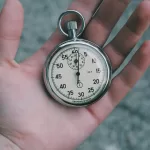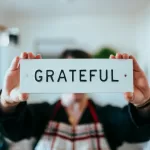Good relationships call for effective dispute resolution. Those who spot “red flags” and address problems assist relationships to flourish. We will talk about dispute resolution, the importance of it, and approaches to strengthen bonds with friends, colleagues, and families. We will also go over warning signs aimed to stop more major problems.
Discover methods of dispute resolution.
One must first grasp dispute resolution before talking about answers for problems. Effective dispute resolution is identification and resolution of problems. Dispute resolution seeks to solve a problem with a solution fit everyone.
Common challenges in groups include Disputes between family, friends, and colleagues will always exist. Good relationships depend on how one approaches challenges. Handling difficulties here helps.
Reading Red Flag Alerts
Red flags point out problems in relationships. Though everyone and every relationship experiences these emotions differently, generally they point to a problem. Early identification of these red flags will allow you to solve problems.
In a relationship, red flags include general unhappiness, poor communication, regular disagreement, and a feeling of one having to walk on eggshells. Red flags point to a concern; not always is a connection fatal. These signs can enable you to control your worries and stop them from getting worse.
Talk about more important problems if your friend and you often dispute small ones. Talk about and work through your problems rather than running from them.
Speak sincerely.
Among the finest approaches to solve problems is open communication. Speaking about trying challenging circumstances without acting aggressively is really crucial. Open contacts enhance communication and help to avoid misunderstandings.
Good rapport depends on communication. Whether the problem is open communication is absolutely important. Understanding and kindness will help to change the subject.
Tell your brother, for instance, you find their actions inappropriate. Talk about your irritation and how you wish things to get better instead of assigning responsibility. Dispute resolution mostly makes use of open communication.
The power of active listening is evident.
Listening is just as crucial as talking when it comes to dispute resolution. Give listening more of your focus than you give talking. This clarifies doubts and helps to solve challenges.
Active attention is listening, showing interest, and deliberately reacting. One ought to hear and comprehend their comments and feelings. Active hearing helps people to communicate and solve difficulties.
Show your pal that you know she is unhappy. Said another way, “I can see why you feel that way,” or “I didn’t realize how much that bothered you.” This shows regard and helps to defuse problems.
Empathy: Seeing events as seen by others
Empathy calls for knowing about other people’s emotions. Understanding your feelings will allow you to find answers. Dealing with a problem depends on both sides feeling heard and valued.
Empathy includes not only agreement but also understanding from the other person’s point of view. See yourself competent to meet their demands and worries. Help them to repair it.
Listen to and encourage a pal worried about a group endeavor. Say, “I know how taxing your project is.” How may we divide work more fairly? Relationships are strengthened through dispute resolution.
Challenge Silence
In strife, remain composed. Under rage one could get worse. Breathe deeply and keep calm to help you to control the situation.
Being cool does not mean discounting feelings or immaculate performance. Logically, one should think through first before answering. Being cool helps one to find a compromise and keeps a fight from getting more strong under control.
If you get enraged debating a friend, back off. “I need some time to cool off before we keep this going,” you say. Calmly going over the problem helps rationality and disagreement to be resolved.
Recognizing your limitations
Personal constraints should be welcomed by everyone. Crossing of boundaries is not possible. Pay attention and provide space if someone says something nasty.
Any relationship gains from boundaries to preserve trust and respect. Knowing someone’s limits shows that you regard their wellness. This can help to avert conflicts and facilitate their settlement.
Friends should not cover subjects they have little interest in. Respect their boundaries and strengthen many aspects of your relationship. Respecting their limits keeps the connection together and helps to release stress.
Solving problems collectively
Fix everything around, not just on one problem. This calls both judgement and creativity. A universal answer helps to lower tension and enhances relationships.
Dealing with a situation calls both flexibility and honesty. Everyone will appreciate your cooperation and concessions even if you might not obtain all you wish. Good dispute resolution depends on this kind of relationship.
Discuss and decide on one movie if neither your sister nor you can agree on one. This cooperation offers everyone value and attention as well as assists to address problems.
Not assigning guilt
Should you start pointing the finger at someone, they could become agitated and sour the relationships. Try not to criticize; instead, concentrate on treatments. Good communication is invaluable.
When anything goes wrong, one naturally points the finger on other people. This hardly ever shows. Instead of pointing fingers, help each other uncover the issue.
Steer clear of calling your roommate nasty for skipping a chore you agreed upon. As “I seen that the dishes aren’t done.” Create such schedules that would help us both. This approach helps in dispute resolution and relationship health to improve.
Power of Apologies and Forgiveness
Apologizing comes quite handy when you make mistakes. One finds peace by forgiving others. Good relationships call both acceptance and apologies.
Apologies do not mean acting sloppily or giving up. It exposes your resolve to make atonement for hurting someone. What forgiveness means is the removal of bitterness and resentment that might aggravate the problem for longer.
For hurting a friend, sorry. I apologies for earlier what I said. One may argue I wanted not to offend you. Apart from dispute resolution, forgiveness helps friendships.
Ask for help.
Arguments sometimes are too huge for one individual. See a licenced expert or reliable adult to help with your problems. They could offer some dispute resolution strategies.
Talk to someone without feeling guilty. One can obtain answers either alone or with outside or expert help. Relative, school counselor, or therapist will assist you in finding and understanding answers.
Should your parents and you find communication difficult, a school psychologist could assist. Having the guts to ask for help strengthens bonds.
Finally….
Dispute resolution is essential in healthy partnerships. Look for red flags; be honest; pay attention; and, by means of teamwork, help to address issues and build ties. Though they are unavoidable, your management of problems counts.









